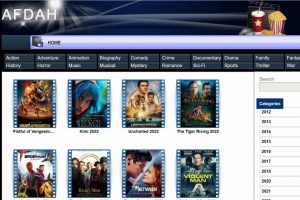
A full-stack developer has a deep understanding and knowledge of both frontend and backend development – makes a full stack. This means they are proficient in various programming languages, frameworks, platforms, databases, tools, and other technologies. You can develop complete applications from start to finish – from the user interface in the front end to the database layer in the back end. In addition to their technical skills, full-stack developers need good problem-solving and communication skills to work effectively with team members. These skills can be an invaluable asset to any company that requires technical expertise.
So, let’s look at what it takes to become a successful full-stack developer in our article.
Requirements and skills of a full stack developer
The skills that a full-stack developer should have vary depending on the requirements and technologies used in software development. As a rule, however, a full-stack developer should know the following areas:
- Front-end development. A full-stack developer should have in-depth knowledge of HTML, CSS, and JavaScript programming languages to create attractive, user-friendly interfaces. In addition, he should also have experience with React, Angular, or Vue.
- Backend development. It should also be able to implement the logic and database interactions on the server side. To do this, he must know a programming language such as Node.js, Python, or Ruby. He should also have experience with frameworks like Express, Django, or Ruby on Rails to implement backend logic.
- Database management. He should be able to create and manage databases to store data efficiently and securely. He should have experience with relational databases such as MySQL or PostgreSQL and NoSQL databases such as MongoDB.
- Version control. He should also have experience with version control systems such as Git to ensure that changes to the code are effectively managed and tracked.
- DevOps practices. A full-stack developer should also know DevOps practices, such as continuous integration and deployment, to deploy and scale the application effectively.
In summary, he should be an all-round developer and be able to work on both frontend and backend tasks and develop complete applications and software from concept to market launch.
How necessary is knowledge of security best practices and debugging tools?
Full-stack developers need to be knowledgeable about best security practices and debugging tools. This allows them to identify and prevent potential vulnerabilities and quickly diagnose problems that arise during software development. Debugging tools are also crucial for troubleshooting errors and optimizing performance. Finally, it helps full-stack developers stay abreast of new trends to stay competitive in an ever-evolving industry.
Security measures include encryption, password management, firewalls, and two-factor authentication. The most popular debugging tools include Chrome DevTools, Firebug, and Node Inspector. These tools allow developers to view source code and fix JavaScript errors in real-time. They can also be used to profile network requests and analyze performance issues. You can also use these tools to troubleshoot, optimize performance, and ensure the security of your applications. Finally, they can use encryption libraries such as bcrypt or PBKDF2 to protect user data from malicious attacks.
Helpful soft skills as a full-stack developer
In addition to technical skills, full-stack developers also need several soft skills to be successful. Here are some soft skills that can be helpful for full-stack developers:
Communication skills. Good communication is essential to be successful as a full-stack developer. It would be best to communicate your ideas and solutions clearly and concisely, both written and verbal. The ability to listen well and give feedback is also essential.
Teamwork skills. Full-stack development often requires close collaboration with other developers, designers, project managers, and team members. Therefore, it is essential to be a team player who can work effectively.
Problem-solving ability. Full-stack developers must be able to identify and solve complex problems. The ability to analyze and solve problems quickly is therefore essential.
Time management. As a full-stack developer, you must be able to use your time effectively and meet deadlines. It is essential to have good planning and organization to complete projects successfully.
Creativity. As a full-stack developer, you must be creative and be able to develop innovative solutions. Creativity can also help solve complex problems and find new approaches.
Willingness to learn. As technology continues to evolve, it is essential to be willing to learn and educate yourself as a full-stack developer continually. A willingness to learn can help you quickly understand and adapt to new technologies.
Customer focus. Full-stack developers should be able to focus on customer needs and understand and implement customer requirements.
These soft skills can help ensure that a full-stack developer is technically competent and able to work effectively in a team and solve complex problems.
Conclusion
In conclusion, a career as a full-stack developer can be rewarding and offers competitive salaries and job prospects. To succeed in this field, you need technical skills, such as best security practices and debugging tools, and soft skills, such as problem-solving, communication and teamwork. It is also essential to stay current on new technologies and trends to remain competitive. With the right skills, you can become a successful full-stack developer. With dedication and hard work, you can be successful in this field!
Also Read : A Complete Guide To Test Automation Cloud





